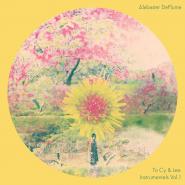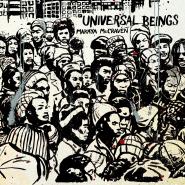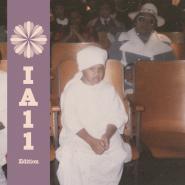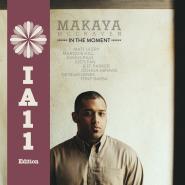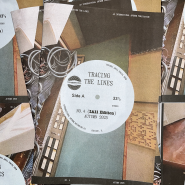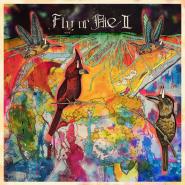MESTIZX - BLACK VINYL by IBELISSE GUARDIA FERRAGUTTI & FRANK ROSALY
| SKU | 132789 |
| Artist | IBELISSE GUARDIA FERRAGUTTI & FRANK ROSALY |
| Title | MESTIZX - BLACK VINYL |
| Label | INTERNATIONAL ANTHEM RECORDING COMPANY |
| Catalog # | IARC 0079LP |
| Tag | |
| Release | W 19 - 2024 |
| Format | Vinyl - EULP |
| EAN Barcode | 789993994052 |
| Import | |
| € 27,99 | incl. VAT, excl. shipping |
Tracks
- balada para la corporatocracia
- turbulencia
- saber do mer
- bless thee mundane
- writing with knots
Description
Black vinyl LP in a heavyweight gatefold jacket, with quarterfold A2 poster insert, IARC obi strip, and dome-patterned inner sleeve
Ibelisse Guardia Ferragutti and Frank Rosaly share musical, communal, and ancestral roots within the Latinx diaspora of Bolivia, Brazil, and Puerto Rico. Ferragutti - raised in Cochabamba, Bolivia - comes from South American musical royalty on both sides of her family... with maternal uncles from the psychedelic staple of Bolivian music Los Kjarkas, and a Brazilian accordionist who played with Gilberto Gil, among others, as a paternal uncle. Rosaly was born and raised in Arizona, but spent the better part of his prolific career working on the Chicago jazz and improvised music scene where, in many ways, he himself defined the sound of the free jazz scene, for a particular era. The two artists connected in Amsterdam in 2015, where they now live together, and work in many capacities across music, theatre, performance art, dance, and community organizing.
Ferragutti & Rosaly have come together on MESTIZX - their debut full-length record as co-composers, arrangers, and musician - to deeply investigate to their lineage and ancestries without the confines of tradition or genre. They are fascinated by the never-ending beauty of Latin rhythmic patterns, microtonal mountain flutes, and oblong swing from the pre and post-colonial Latin American region. With references to free jazz, electronica, Chicago post-rock, bomba, plena, cumbia, ambient, Andean, minimal, noise, punk and folk, the record illustrates several sides of a decolonization process in a deliberately loose, eclectic, and celebratory story. The music harkens to the richness of ritualistic gatherings, which they recognize as an intrinsic form of resilience and resistance, as well as a deeply necessary practice that most humans seek — in churches, dance clubs, music venues and festivals. An atmosphere of their native ecologies appear throughout the record. Allegoric symbolism and dance traditions from the Caribbean and Andes materialize. Sometimes as a distant memory, often scrupulously. These aspects have shaped the music to represent Latin cultures and it is deeply woven in the fabric of an eccentric, speculative song-story, rhyming with echoes of protest music marked by post-dictator realities and various socio-political instabilities.


